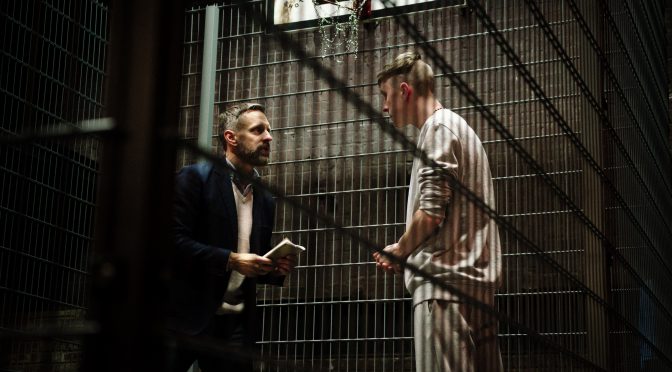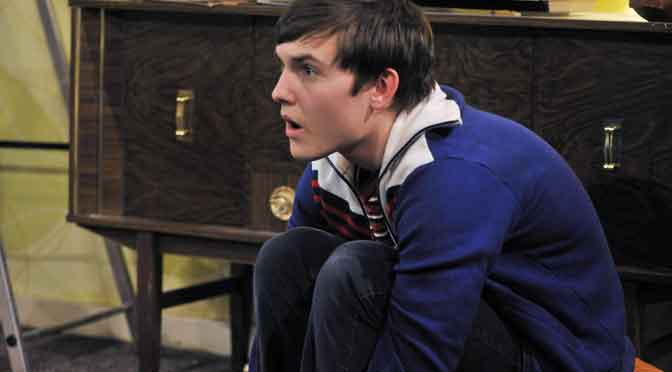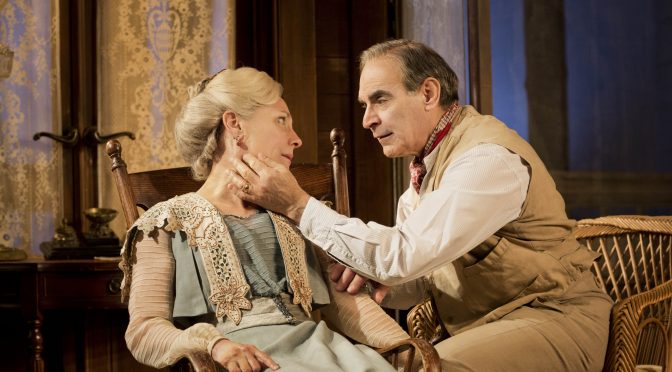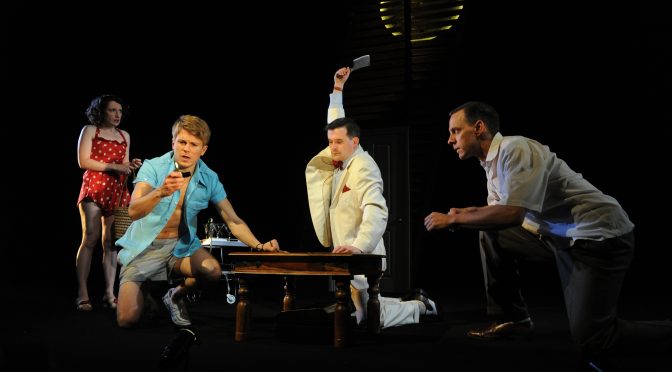Warning: this blog may contain hyphens. Lots of them. Franco-Uruguayan playwright Sergio Blanco’s acclaimed piece returns as part of its director-translator Daniel Goldman’s CASA Latin American Theatre Festival. Ostensibly an exploration of patricide, we watch a dramatist’s encounters with a murderer in prison. But we also watch the construction – writing and rehearsals – of the very play we are watching. Confused? Don’t be. Described as a multiple-reality drama, Thebes Land uses its novel approach to fantastic results.
Blanco sets up layers within his play marvellously; unravelling the motives behind a brutal murder, while commenting on the process of any play coming to the stage. The playwright, performed by Trevor White, greets us and makes what’s going on transparent… and then not so. But Blanco and Goldman wear their learning lightly. Deflating any pretentiousness only adds to the cleverness and the humour – White is excellent here – and it’s a lot of fun.
Take meeting our convicted killer Martin – first as a ‘real’ criminal, then as the actor called Freddie who plays him. Alex Austin makes both roles convincing, switching with skill and reflecting the text’s magnificent dynamism. Austin is more than good – he is Daniel-Day-Lewis-in-1985-good. The play gets funnier, as our RADA grad questions the motivations of a character whose life is so far removed from his own. Suddenly this whole theatre thing starts to look silly!
There’s drama in Thebes Land, too. Austin makes his literally caged character bristle with violence. There are a good few jumps as tension is heightened by Goldman’s direction. As for unexpected twists, Blanco urges we don’t read the play before we see it, and he’s worth listening to. I was genuinely shocked at one revelation here, and by the way the metatheatricality develops.
Ultimately, of course, making theatre is serious stuff. The elision between art and life gains power from Blanco’s approach. Randomness in the creative process is examined brilliantly – with a little help from Whitney Houston. While the link to myth and Oedipus Rex (predictably a red rag for our over-earnest writer) is broadened to explore the darkness that is within us all. There’s a connection and responsibility between artists, audience and subject that’s not to be laughed at.
Emotions blossom from the play displaying artifice so blatantly. We feel an insight into our writer (yet more credit to White) and affinity with the actor whose work we see progress. As for Martin – there’s respect for the serious investigation into his crime and punishment. The fictional status of all three becomes mind-bogglingly blurred, likewise their relationships. An unbearably touching moment of filial affection is followed by erotic tension. Having both in the same play, without being creepy, is an indication of how complex this text is: an intellectual-comedy-thriller-satire-tragedy like no other.
Until 7 October 2017
Photo by Alex Brenner




